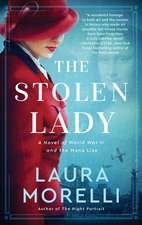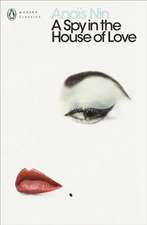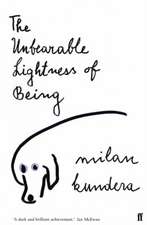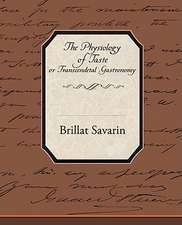Summer Will Show
Autor Sylvia Townsend Warneren Limba Engleză Paperback – 9 sep 2009
Then tragedy strikes: the children die, and Sophia, in despair, finds her way to Paris, arriving just in time for the revolution of 1848. Before long she has formed the unlikeliest of close relations with Minna, her husband’s sometime mistress, whose dramatic recitations, based on her hair-raising childhood in czarist Russia, electrify audiences in drawing rooms and on the street alike. Minna, “magnanimous and unscrupulous, fickle, ardent, and interfering,” leads Sophia on a wild adventure through bohemian and revolutionary Paris, in a story that reaches an unforgettable conclusion amidst the bullets, bloodshed, and hope of the barricades.
Sylvia Townsend Warner was one of the most original and inventive of twentieth-century English novelists. At once an adventure story, a love story, and a novel of ideas, Summer Will Show is a brilliant reimagining of the possibilities of historical fiction.
| Toate formatele și edițiile | Preț | Express |
|---|---|---|
| Paperback (2) | 53.47 lei 24-30 zile | +19.61 lei 4-10 zile |
| Penguin Books – 27 ian 2021 | 53.47 lei 24-30 zile | +19.61 lei 4-10 zile |
| NEW YORK REVIEW OF BOOKS – 9 sep 2009 | 83.34 lei 3-5 săpt. | +14.58 lei 4-10 zile |
Preț: 83.34 lei
Nou
Puncte Express: 125
Preț estimativ în valută:
15.95€ • 16.59$ • 13.17£
15.95€ • 16.59$ • 13.17£
Carte disponibilă
Livrare economică 24 martie-07 aprilie
Livrare express 07-13 martie pentru 24.57 lei
Preluare comenzi: 021 569.72.76
Specificații
ISBN-13: 9781590173169
ISBN-10: 1590173163
Pagini: 329
Dimensiuni: 130 x 203 x 20 mm
Greutate: 0.35 kg
Editura: NEW YORK REVIEW OF BOOKS
ISBN-10: 1590173163
Pagini: 329
Dimensiuni: 130 x 203 x 20 mm
Greutate: 0.35 kg
Editura: NEW YORK REVIEW OF BOOKS
Notă biografică
Sylvia Townsend Warner (1893–1978) was a poet, short-story writer, and novelist, as well as an authority on early English music and a devoted member of the Communist Party. Her many books include Mr. Fortune’s Maggot and Lolly Willows (both published by NYRB Classics), The Corner that Held Them, and Kingdoms of Elfin.
Claire Harman’s first book, a biography of Sylvia Townsend Warner, was published in 1989 and won the John Llewellyn Rhys Prize. She has since published biographies of Fanny Burney and Robert Louis Stevenson. She was elected a Fellow of the Royal Society of Literature in 2006.
Claire Harman’s first book, a biography of Sylvia Townsend Warner, was published in 1989 and won the John Llewellyn Rhys Prize. She has since published biographies of Fanny Burney and Robert Louis Stevenson. She was elected a Fellow of the Royal Society of Literature in 2006.
Recenzii
"It's a wildly leftist novel of love, war and death; Townsend Warner chucks the
lot into her simmering story, but it remains skilfully crafted. Brilliantly
entertaining and far ahead of its time. " — The Guardian
"Sophia Willoughby leaves her disloyal husband. Both of her young children die of smallpox. Sophia flees to Paris, where she enters a relationship with her husband's mistress, a woman raised in czarist Russia. It is 1848, and Sophia finds herself caught in the revolutionary crossfire. It is a long, hard fall from the landed gentry of her native England to the bloody streets across the Channel...Anxiety, harsh, impossible choices and the fugitive life -- these are Warner's stations of the cross." --Los Angeles Times
"As the denouement of Summer Will Show, where elegance burns into fervor, seems to me the most triumphal single moment in revolutionary fiction, so the whole elaborate, fine-spun novel seems the most skilful, the most surefooted, sensitive, witty piece of prose yet to have been colored by left-wing ideology." --Mary McCarthy, The Nation
"Sylvia Townsend Warner has always possessed a cachet lifting her fantasies above mere prettiness and artifice...now she has produced a more imaginative work which begins with no indication of how it will end, and becomes by turns a period comedy of manners, a stylized comedy of temperaments and at last the drama of a woman's conversion to a new order of life...It is a very difficult thing to begin a book on a light and mocking note, make it gradually grow deeper and more resonant, and charge it finally with passionate sound; but Miss Warner has done it with unmistakable success." –The New York Times
"This book is indeed a woman’s handiwork, with a woman’s insight, malice, exquisiteness; in its wit, its instinct for style, its drawing-room urbanities, it will suggest at one time or another the work of a Rebecca West, a Virginia Woolf, an Elinor Wylie." –Louis Kronenberger, The New York Times
“Townsend Warner has to be one of the great under-read British novelists of the twentieth century. This, my favourite of her novels, has a disaffected Victorian wife falling for her husband's charismatic mistress, and discovering revolutionary politics along the way.” —Sarah Waters
"There is need for a respectful tone in speaking of Miss Warner, for she manages certain things superlatively well...Her imagination and verbal skill place her far above the average contemporary novelist; Summer Will Show is filled with original phrasings and apt figures of speech." –Ralph Thompson, The New York Times
"We learned to expect excellence of [Warner]...when she published Summer Will Show...She has an extraordinary capacity for being subtle without holding her narrative to the plaintive, precious, minor key that usually accompanies subtlety in modern novels." –Charles Poore, The New York Times
"The novel of [Sylvia Townsend Warner]'s with the strongest lesbian subtext is Summer Will Show; it's also, I think, her best book. It's a novel of female fascinations, in which a conventional Victorian wife, Sophia Willoughby, follows her philandering husband to Paris, only to find herself falling in love with his charismatic storytelling mistress, Minna." --Sarah Waters, Out Magazine
"Playing the game of choosing the century's finest writers, England's literary pundits conspicuously failed to mention Sylvia Townsend Warner. The omission was, frankly, bizarre...Shame on the list makers, then, for such aberration. It's almost as bad as leaving Jane Austne out of a roundup of early 19th-century British novelists." –The New York Times Book Review
"Her novels, short stories, poems--and now letters--are the work of a minor artist, but an artist blessed with a poised, felicitous command of language and the ability to portray both the ordinary and the odd with charming, compassionate wit." –Michiko Kakutani, The New York Times
"The unifying elements in her work were always a compassion and understanding for those whose lives were constricted, foreshortened bereft of promise...Miss Warner was one of the most stylish, one of the most civilized and cultivated of writers. Idea and word worked together like engaged gears. Trying to suggest her quality, reviewers drew comparisons between her and Jane Austen or Elinor Wylie or Katherine Mansfield." –New York Times
"Set in Paris during the revolutionary spring of 1848, Summer Will Show tells of the struggle of Sophia Willoughby, a woman set adrift by the death of her children, for self-understanding, commitment, love. With the arrival of Minna Lemuel, her husband's mistress, the novel unexpectedly takes a turn that gives it greater dimension and weight. In Minna, Warner created one of the more memorable female characters in modern fiction. Summer Will Show...demonstrates the same virtues of wit and compassion that grace all of her work." –Newsday
"Warner will be mostly known to American readers I imagine, for the many short stories that appeared in the New Yorker from 1936 almost until her death in 1978. Her offbeat, whimsical talent was in fact well suited to the short story, but her output was actually surprisingly large and included also novels, biography, poetry and translations. She was such an original, so indifferent to fashion, that she may never be assigned a place in mainstream literature but will be rediscovered and rediscovered again and again." –The New York Times Book Review
lot into her simmering story, but it remains skilfully crafted. Brilliantly
entertaining and far ahead of its time. " — The Guardian
"Sophia Willoughby leaves her disloyal husband. Both of her young children die of smallpox. Sophia flees to Paris, where she enters a relationship with her husband's mistress, a woman raised in czarist Russia. It is 1848, and Sophia finds herself caught in the revolutionary crossfire. It is a long, hard fall from the landed gentry of her native England to the bloody streets across the Channel...Anxiety, harsh, impossible choices and the fugitive life -- these are Warner's stations of the cross." --Los Angeles Times
"As the denouement of Summer Will Show, where elegance burns into fervor, seems to me the most triumphal single moment in revolutionary fiction, so the whole elaborate, fine-spun novel seems the most skilful, the most surefooted, sensitive, witty piece of prose yet to have been colored by left-wing ideology." --Mary McCarthy, The Nation
"Sylvia Townsend Warner has always possessed a cachet lifting her fantasies above mere prettiness and artifice...now she has produced a more imaginative work which begins with no indication of how it will end, and becomes by turns a period comedy of manners, a stylized comedy of temperaments and at last the drama of a woman's conversion to a new order of life...It is a very difficult thing to begin a book on a light and mocking note, make it gradually grow deeper and more resonant, and charge it finally with passionate sound; but Miss Warner has done it with unmistakable success." –The New York Times
"This book is indeed a woman’s handiwork, with a woman’s insight, malice, exquisiteness; in its wit, its instinct for style, its drawing-room urbanities, it will suggest at one time or another the work of a Rebecca West, a Virginia Woolf, an Elinor Wylie." –Louis Kronenberger, The New York Times
“Townsend Warner has to be one of the great under-read British novelists of the twentieth century. This, my favourite of her novels, has a disaffected Victorian wife falling for her husband's charismatic mistress, and discovering revolutionary politics along the way.” —Sarah Waters
"There is need for a respectful tone in speaking of Miss Warner, for she manages certain things superlatively well...Her imagination and verbal skill place her far above the average contemporary novelist; Summer Will Show is filled with original phrasings and apt figures of speech." –Ralph Thompson, The New York Times
"We learned to expect excellence of [Warner]...when she published Summer Will Show...She has an extraordinary capacity for being subtle without holding her narrative to the plaintive, precious, minor key that usually accompanies subtlety in modern novels." –Charles Poore, The New York Times
"The novel of [Sylvia Townsend Warner]'s with the strongest lesbian subtext is Summer Will Show; it's also, I think, her best book. It's a novel of female fascinations, in which a conventional Victorian wife, Sophia Willoughby, follows her philandering husband to Paris, only to find herself falling in love with his charismatic storytelling mistress, Minna." --Sarah Waters, Out Magazine
"Playing the game of choosing the century's finest writers, England's literary pundits conspicuously failed to mention Sylvia Townsend Warner. The omission was, frankly, bizarre...Shame on the list makers, then, for such aberration. It's almost as bad as leaving Jane Austne out of a roundup of early 19th-century British novelists." –The New York Times Book Review
"Her novels, short stories, poems--and now letters--are the work of a minor artist, but an artist blessed with a poised, felicitous command of language and the ability to portray both the ordinary and the odd with charming, compassionate wit." –Michiko Kakutani, The New York Times
"The unifying elements in her work were always a compassion and understanding for those whose lives were constricted, foreshortened bereft of promise...Miss Warner was one of the most stylish, one of the most civilized and cultivated of writers. Idea and word worked together like engaged gears. Trying to suggest her quality, reviewers drew comparisons between her and Jane Austen or Elinor Wylie or Katherine Mansfield." –New York Times
"Set in Paris during the revolutionary spring of 1848, Summer Will Show tells of the struggle of Sophia Willoughby, a woman set adrift by the death of her children, for self-understanding, commitment, love. With the arrival of Minna Lemuel, her husband's mistress, the novel unexpectedly takes a turn that gives it greater dimension and weight. In Minna, Warner created one of the more memorable female characters in modern fiction. Summer Will Show...demonstrates the same virtues of wit and compassion that grace all of her work." –Newsday
"Warner will be mostly known to American readers I imagine, for the many short stories that appeared in the New Yorker from 1936 almost until her death in 1978. Her offbeat, whimsical talent was in fact well suited to the short story, but her output was actually surprisingly large and included also novels, biography, poetry and translations. She was such an original, so indifferent to fashion, that she may never be assigned a place in mainstream literature but will be rediscovered and rediscovered again and again." –The New York Times Book Review

















